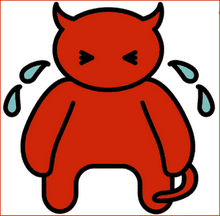
Dir. Andrew Bujalski
Mutual Appreciation
[Drama/Indie]
Mutual Appreciation
[Drama/Indie]
The plot: Alan (Justin Rice) is a musician who leaves a busted-up band for New York, and a new musical voyage. He tries to stay focused and fends off all manner of distractions, including the attraction to his good friend's girlfriend (Rachel Clift).
Mutual Appreciation, the sophomore effort of writer-director Andrew Bujalski, is one of those films which are so unapologetically genre-specific that, within the first five minutes, viewers will know if they are going to adore or abhor. Shot in black and white and in that wobbly, unprofessional style so beloved of today’s professionals, it features insecure people mumbling to other insecure people about things they really shouldn’t be so insecure about. Little surprise, then, that it is one of the most impressive films I have seen so far this year*.
This recommendation should be taken with a pinch of salt, however, because, without wishing to sound too much like the prickly, outstretched tentacle of truth belonging to a certain Friday night television review programme, Mutual Appreciation is not for everyone.
What it is, though, is a big, colourless, two-fingered salute to the recent cultural obsession with all things normal. Unlike all the books, games, music and movies that purport to celebrate the mundane but do so through a clean-cut looking glass of icy precision, this is fucking mundane, and dull, and unimportant and hopelessly unspectacular.
As characters shuffle from room to room, uttering sweet nothings between sips of water, tweaks of hair and adjustments of belt buckles, we are reminded just what it takes to make a great independent film - a complete lack of consideration for the comfort of the viewer, the producer, and acts 1, 2a, 2b and 3. There are no twists, no shocks, no bangs (rarely any noise at all, in fact), hardly any bucks and a whole lot of youthful indignation. I wasn’t alive in 1977, but this is the type of movie which makes me wish I was.
Whereas the purpose of punk was to do be active, to do something (anything) to show how much society didn’t care, the role of films like Mutual Appreciation is to critique the relentless pace of that same society in the twenty-first century by being deliberately slow, achingly apathetic and irresistibly insignificant; don’t vote, don’t have kids, don’t get on the property ladder and don’t get a job. Instead, do have friends, do stay in school, do be creative and do whoever the hell you like. If you don’t have time then, well, that’s your own bloody fault. 90
* Though originally released in 2005, it only recently made its merry way to my area.






